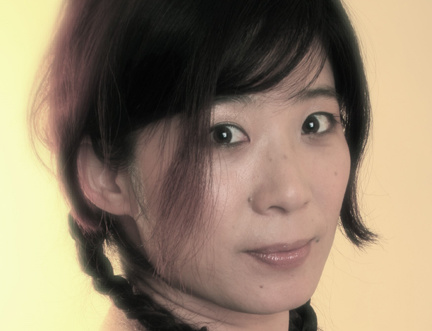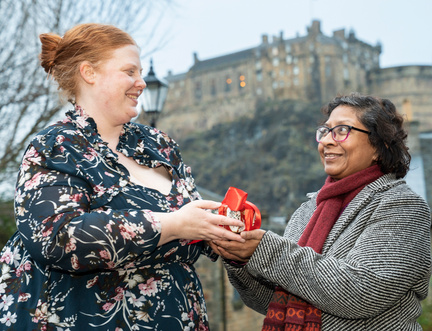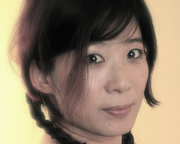Freedom of Movement and What It Means in Europe
By Hsiao-Hung Pai

In 2018, we commissioned 51 authors from 25 countries to write essays exploring ideas about freedom for The Freedom Papers, a publication produced in partnership with Gutter Magazine. Read on for Hsiao-Hung Pai's essay, and visit guttermag.co.uk to purchase a copy of The Freedom Papers.
A few days after I arrived in Lampedusa, an Italian island nearer to Africa than to Europe, I met Jahid, Saeed and Asif, all under 18 years of age who came from a village in Bangladesh, who had been rescued from a sinking dinghy in the Mediterranean. The three had been walking barefoot for a few days, until they were given flip-flops by the staff of the reception camp in the remote interior of the island. Jahid always stood out in the crowd, wearing a long t-shirt from Bangladesh. Saeed was curious about everything outside the camp. What is this place? He had no idea that the island was part of Italy until we talked. Asif, the quiet one, was a rebel by nature, even when it put his safety at risk – like when he demanded wages from a Libyan factory boss. The three boys had been trafficked to work in Libya, a nightmare from which they escaped only by paying for a place on a boat heading for Europe.
They did not expect that their misery was to continue here in Europe. Following several weeks in Lampedusa, the three of them were sent to an over-crowded camp in Siculiana on the southern coast of Sicily. They felt they were being caged. The conditions were so poor that many had already run away. Escape was so common that new arrivals were always taught to say ‘where is the station?’ (‘Dov’è la stazione?’) by those still there in the camp. This became the only phrase that the three boys ever got to know in Italian. Within a couple of days, they decided to run away, too. They walked seven hours under the fierce sun to reach the nearest bus station to take them to Palermo. From there, they went on a bus trip to Milan and then southwest to Ventimiglia, where they were driven across the border to France. Their journey has been endless moving-on and escaping from misery.
‘Freedom of movement’ is one of the founding principles of the EU, where citizens of the EU states are able to move freely to or live in the countries within the trading bloc. This freedom is what defines the fundamentals of being an EU citizen. As the world’s wealthiest continent, people are able to move across borders as easily as the goods.
However, at the same time, the principle of EU’s freedom of movement is founded upon the exclusion of all those outside of its borders. It is as if the wealth of the continent has to be maintained through the defence of its frontiers. Europe therefore established among its populace the understanding that people’s movement from the outside into Europe would present a threat to its well-being and ‘way of life’. Thus the term ‘refugee crisis’, ‘migrant crisis’, which has become how everyone on this continent makes sense of the displacement of people – people moving across borders as result of conflicts, wars, poverty and degradation – across the world. This is the European perspective that looks at the arrival of the displaced in terms of security and migration management.
When ‘freedom of movement’ has been established as a non-universal concept, it becomes acceptable that people are given a differential set of rights and entitlements. Europeans who cross borders are called ‘expats’. For those outside of the Fortress Europe, a hierarchy has been established that categorises people according to what compels them to move and cross borders: the distinction has been set up between ‘those who flee wars’ and ‘those who want a better life’, i.e. the false distinction between refugees ( ‘the passive, victims who are forced to move’) and ‘economic migrants’ (who are ‘able to choose to move’). Both are seen as alien others to Europe. By this racial hierarchy, humanity is disciplined and stratified into ‘humans, not-quite-humans, and non-humans’ (the ‘racial assemblages’ phrased by Alexander Wehelyie, a US professor of African American Studies).
More than 25,000 people have died in their attempt to reach or stay in Europe since 2000. When displaced people from the Third World risk their lives to change their destiny and survive their journey to enter Europe, they are immediately confronted with a system that is not designed to offer them protection of rights and wellbeing but profits from them and keeps them marginalised.
Europe’s asylum and immigration system works via the racial hierarchy that filters people and processes them into categories such as ‘refugees’ and ‘economic migrants’. Those who qualify the asylum process will most likely start living a life of limbo. Many feel that they must find a way to change their destiny, once again. They struggle against the deprivation of their freedom by running away from the asylum shelters and camps. From south to north, country to country, they travel to seek acceptance and find their place to be. Many displaced people like Jahid, Saeed and Asif are using their very limited resources to resist the structural violence imposed on them by European states.
Those who are kept outside the asylum system will be trapped in the highly exploitative, informal economy, with no protection, let alone rights as workers. These unwanted ‘economic migrants’ then become the backbone of many of Europe’s industries while being regularly scapegoated for society’s problems. Overall, the ‘refugee crisis’ or ‘migrant crisis’ seems to work perfectly for Europe: by illegalising people, the continent gains a ready, abundant supply of cheap labour (and often slave labour) that keeps industry profits going. For instance, Italy’s agriculture maintains its profitability by super-exploiting irregular migrant workers.
It is clear that in the European policy mindset and public discourse, ‘freedom of movement’ set out by the EU is a principle for the global North only. This is apartheid on a global scale. Wouldn’t we all like to see a world where resources are shared equally and an end to protection of national interests of the elites at the expense of people outside of their borders?
Copyright © 2018, Hsiao-Hung Pai. All rights reserved.
Supported by the Scottish Government’s Edinburgh Festivals Expo Fund through Creative Scotland.
Look, Listen & Read
- 2025 Festival:
- 9-24 August
Latest News
 Communities Programme participants celebrate success of 2024
Communities Programme participants celebrate success of 2024




